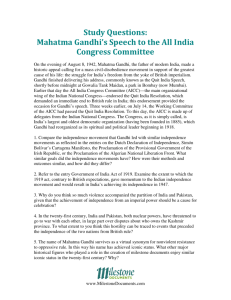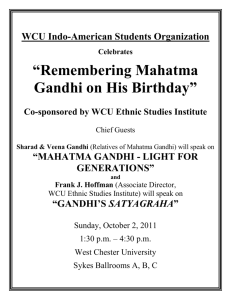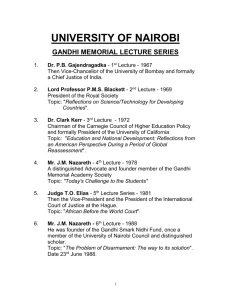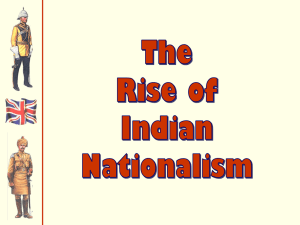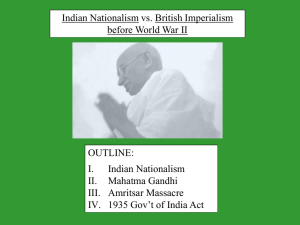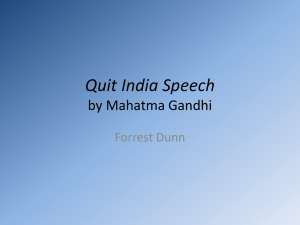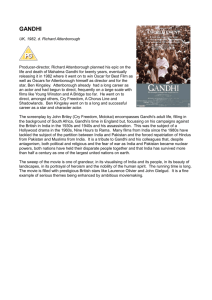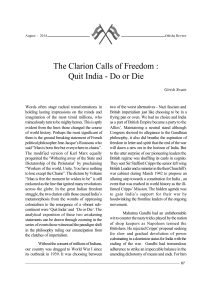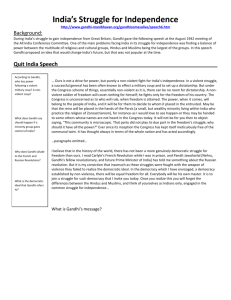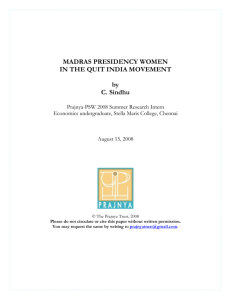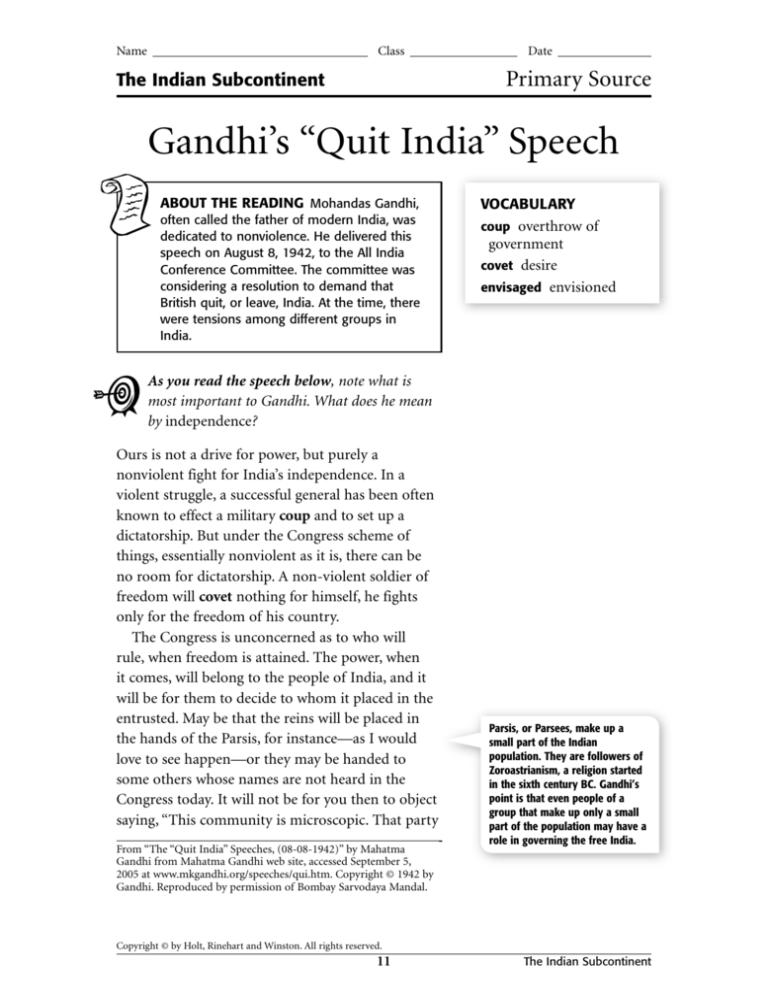
Name
Class
Date
Primary Source
The Indian Subcontinent
Gandhi’s “Quit India” Speech
ABOUT THE READING Mohandas Gandhi,
often called the father of modern India, was
dedicated to nonviolence. He delivered this
speech on August 8, 1942, to the All India
Conference Committee. The committee was
considering a resolution to demand that
British quit, or leave, India. At the time, there
were tensions among different groups in
India.
VOCABULARY
coup overthrow of
government
covet desire
envisaged envisioned
As you read the speech below, note what is
most important to Gandhi. What does he mean
by independence?
Ours is not a drive for power, but purely a
nonviolent fight for India’s independence. In a
violent struggle, a successful general has been often
known to effect a military coup and to set up a
dictatorship. But under the Congress scheme of
things, essentially nonviolent as it is, there can be
no room for dictatorship. A non-violent soldier of
freedom will covet nothing for himself, he fights
only for the freedom of his country.
The Congress is unconcerned as to who will
rule, when freedom is attained. The power, when
it comes, will belong to the people of India, and it
will be for them to decide to whom it placed in the
entrusted. May be that the reins will be placed in
the hands of the Parsis, for instance—as I would
love to see happen—or they may be handed to
some others whose names are not heard in the
Congress today. It will not be for you then to object
saying, “This community is microscopic. That party
From “The “Quit India” Speeches, (08-08-1942)” by Mahatma
Gandhi from Mahatma Gandhi web site, accessed September 5,
2005 at www.mkgandhi.org/speeches/qui.htm. Copyright © 1942 by
Gandhi. Reproduced by permission of Bombay Sarvodaya Mandal.
Parsis, or Parsees, make up a
small part of the Indian
population. They are followers of
Zoroastrianism, a religion started
in the sixth century BC. Gandhi’s
point is that even people of a
group that make up only a small
part of the population may have a
role in governing the free India.
Copyright © by Holt, Rinehart and Winston. All rights reserved.
11
The Indian Subcontinent
Name
Class
Date
Primary Source
Gandhi’s “Quit India” Speech, continued
did not play its due part in the freedom’s struggle;
why should it have all the power?”
Ever since its inception the Congress has kept itself
meticulously free of the communal taint. It
has thought always in terms of the whole nation
and has acted accordingly . . .
I believe that in the history of the world, there
has not been a more genuinely democratic struggle
for freedom than ours. I read Carlyle’s French
Resolution while I was in prison, and Pandit
Jawaharlal has told me something about the Russian
revolution. But it is my conviction that inasmuch
as these struggles were fought with the weapon of
violence they failed to realize the democratic ideal.
In the democracy which I have envisaged, a
democracy established by nonviolence, there will
be equal freedom for all. Everybody will be his own
master. It is to join a struggle for such democracy
that I invite you today.
Once you realize this you will forget the
differences between the Hindus and Muslims, and
think of yourselves as Indians only, engaged in the
common struggle for independence . . .
The French Revolution took place
from 1789 to 1799. Peasants and
a new middle class rebelled
against the monarchy and nobles.
The Russian Revolution of 1917
overthrew the czar. Both revolutions
were violent. Neither resulted in a
lasting democracy.
WHAT DID YOU LEARN?
1. What is the main idea that Gandhi wants to get across in his speech?
2. How does Gandhi try to unify his audience?
Copyright © by Holt, Rinehart and Winston. All rights reserved.
12
The Indian Subcontinent

